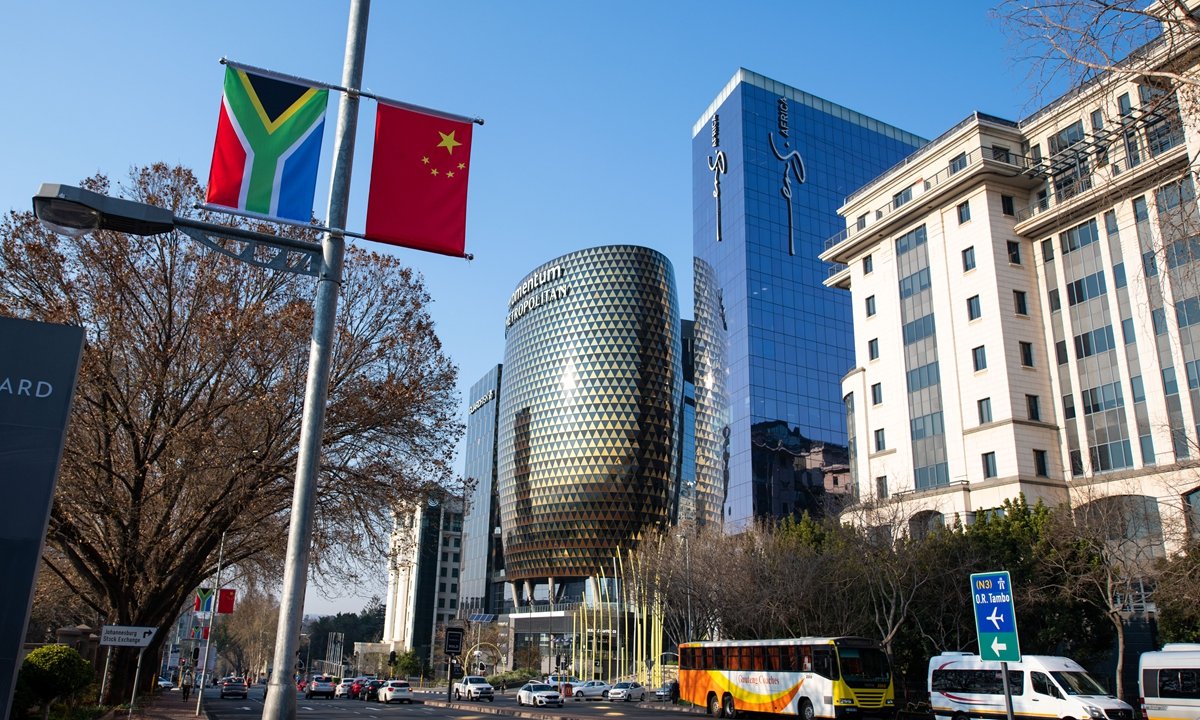Chinese President Xi Jinping embarked on a state visit to South Africa this Monday, coinciding with the BRICS Summit from Tuesday to Thursday in Johannesburg. This journey, welcomed by academics, fortifies the China-South Africa bond as they commemorate 25 years of diplomatic relations initiated in 1998.
Xi’s visit, amidst intensifying geopolitics, could spur China-Africa synergy. Observers are optimistic that this collaboration could guide developing and emerging economies in tackling pressing global issues.
The fervor for the BRICS Summit was evident in Johannesburg. Advertisements publicizing the event were omnipresent, and national flags of both nations waved proudly on streets. Chinese visitors were met with warmth by locals, underscoring the cordiality between the nations.
China’s involvement in South Africa’s growth cannot be understated. Beijing supports pivotal infrastructure projects such as the Small Harbour Development Project and the Mzimvubu Water Project. Such initiatives play a crucial role in employment creation, a sentiment echoed by a statement from the South African Presidency.
This visit is set to delve into how both nations can fortify their existing diplomatic, economic, and cultural connections. President Xi’s signed article in South African media titled “Sailing the giant ship of China-South Africa friendship and cooperation toward greater success” was testament to this aim. Paul Tembe, renowned author, praised Xi’s genuine warmth and the depth of the relationship.
Drawing on history, Xi reiterated China’s support during South Africa’s battle against apartheid and the nation’s recent challenges, from pandemic relief to power crises. “Our relationship has entered a ‘golden era’… South Africa was the first African country to sign the Belt and Road cooperation document with China,” Xi emphasized.
Trade figures validate this partnership, with a year-on-year increase of 10.5% in 2023, hitting 226.15 billion yuan ($31.06 billion). China’s imports largely comprise raw materials from South Africa, while also contributing to infrastructural and telecommunication projects. Yet, analysts suggest that opportunities abound in industrial upgrades, the digital economy, and oceanic ventures.
Beyond trade, Professor Song Wei from Beijing Foreign Studies University proposed bolstered cooperation in culture, tourism, and education.
Xi also delineated objectives for bilateral ties, encompassing shared ideals, deep-rooted friendship, and championing shared interests. Crucially, the China-South Africa relationship transcends bilateral confines, gaining global significance.
In South Africa, Xi will co-chair the China-Africa Leaders’ Dialogue with President Cyril Ramaphosa. Experts postulate South Africa could accelerate Africa’s ties with China, promoting continental economic assimilation, industrial evolution, and modernization.
David Monyae from the University of Johannesburg extolled China’s positive impact on Africa, noting the tangible benefits of the Belt and Road Initiative (BRI) for locals. In 2023, Chinese foreign direct investment to Africa surged by 4.4%. Over 3,000 Chinese firms have deeply invested in Africa, with a majority being private entities. The commitment is evident – Chinese enterprises employ primarily locals and contribute significantly to infrastructural and community projects.
China’s alliance with Africa is a beacon for development and offers a blueprint for countries aiming for tailored modernization. Xi spotlighted several successful joint projects, including the Mombasa-Nairobi Railway.
Xi’s article accentuated the imperative of a robust China-Africa nexus, asserting it would invigorate global progress and foster global stability. As part of the Global South, both nations are poised to advocate for amplified representation in global affairs and counter unilateralism.
Sanusha Naidu, an expert from the Institute for Global Dialogue, expressed that BRICS symbolizes the aspirations of the Global South, especially vital as the world grapples with post-pandemic recovery and geopolitical strain. Lan Qingxin, a BRICS Studies expert, asserted that BRICS amplifies the voice of developing nations without confronting entities like the G7. The attention this BRICS Summit has garnered, coupled with challenges, underscores the need for more equitable global governance.
Read More:
